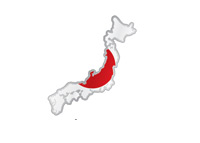Japan Will Face Debt Crisis As Population Shrinks
 According to the Japanese Ministry of Health, Labor and Welfare, the population of Japan is expected to shrink 30% by the year 2060.
According to the Japanese Ministry of Health, Labor and Welfare, the population of Japan is expected to shrink 30% by the year 2060. The current population of Japan is 128 million. The Ministry of Health, Labor and Welfare predicts that this number will drop to just 86.74 million within 50 years.
Here is another sobering prediction from the same source - senior citizens (65+) will account for 39.9% of the Japanese population by 2060.
So, let's pull out the calculators - by 2060, there will only be roughly 52 million people under the age of 65 in Japan. This compares to 90.86 million Japanese citizens aged 64 and under in 2010.
Now, this obviously creates a massive problem for Japan.
According to Japan's Ministry of Finance, accumulated local and central government debt clocked in at a staggering 229.1% of GDP (gross) in the 2011 fiscal year. This compares to roughly 100% for the United States, and 83% for the United Kingdom.
Japan has been able to get by thanks to a combination of low interest rates and a private sector that has been willing to buy up Japanese debt. Roughly 95% of all Japanese debt is held by domestic institutions and individuals.
In short - Japanese citizens have financed the country's deficit spending by plowing a large portion of their savings into government bonds. The Japanese government is not shy about soliciting these funds either.
So, as the Japanese population shrinks and continues to get older, the amount of available funds to finance Japanese deficit spending will undoubtedly drop. There will be fewer workers, and Japan's senior citizens (estimated to be nearly half of the population by 2060) will surely be looking to cash in some of their investments in order to fund their retirements.
On top of all of that, the younger generations of Japanese don't seem to have the same thirst to work that their parents and grandparents did. A recent survey from a consulting company in Japan estimates that 60% of men in their early 20s consider themselves to be "grass-eating men" - or, men who have a preference for "quieter, less competitive lives".
--
People talk about the debt crisis in the European Union and a potential debt crisis in the United States, but Japan is also flashing major warning signals right now as well.
Filed under: General Knowledge



